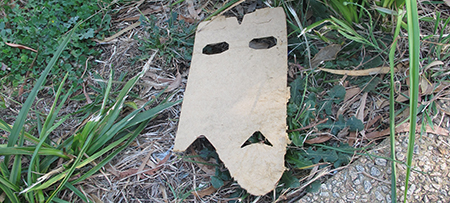From the Kitchen #180
There are a number of important issues in Australia that affect the way our society operates, around asylum seeking, criminality and terrorism. The two main federal political parties appear to be acting on the notion that they will remain, or be, electable if they show that Australia is tough on both issues. They each support the ‘get tough’ attitude of the other, whichever of them is in power and they have been doing this for decades. They do this based on the notation that we need to be kept safe from “illegal immigrants” and terrorists – and sometimes conflate the two groups. They promulgate the fear and then play to it.
At a state level, governments of both left and right flavours do the same with criminal law – playing on perceived community fears and ensuring that the media receive frequent briefings in order to keep peddling the fear. Even though most child sexual abuse is perpetrated by family members or people known to the abused children, increasingly draconian laws are enacted to target ‘public’ abusers.
In Australia, around one hundred women are murdered each year by their partners or ex-partners (‘domestic violence’) and, according to the Australian Bureau of Statistics, 66% (158) of all murders in 2014, out of a total of 238 that year, occurred at a residential location (this includes the ‘domestic violence’ murders).1 Yet state governments keep telling us that tougher laws are needed to keep us safe on the streets. The murder rate has been dropping in Australia, and this drop “has been more notable in relation to assaults in public places”.2 But we are made to be increasingly frightened of being attacked in the street.
From time to time there are attempts at more humane responses to certain crimes, usually aimed at rehabilitation of perpetrators and at keeping the jail population down. In most cases, those programs are effective in both the rehabilitation and keeping people out of jail, as well as in cutting costs and reducing recidivism. Yet, over and over, these programs eventually run aground when governments starve them of funds “because the money is needed elsewhere”, or the programs are axed because of media campaigns pointing out that through such programs “we are going soft on crime”.
That these programs reduce overall violent crime, vandalism and general lawlessness and make our streets safer for all of us, does not seem to matter to the media or the law-makers.
What is it that makes us susceptible to fear? Does it go back to prehistoric times, when we could end up as a meal? Is it the fairy tales we are told when we are little? Is it the overwhelming ‘news’ of assaults and murders and fires and storms and terrorists in our midst? Is it created by the thousands of human-made chemicals in the environment and in our food? Does it come from people in power who want to keep us fearful? Is it a result of having to work long hours to earn enough to live reasonably comfortably? I don’t now – I can only conjecture.
There are always people who say that there is a small number of very wealthy and powerful individuals who manipulate governments and the press to do their bidding and keep the populace controlled. If we believe this, it could lead to us being fearful; but afraid of what?
That there is always war being waged somewhere on the planet and that any of these could escalate into global conflagration is a possible source of fear.
Fear is a strange state of being. It heightens tension, both within individuals and between people. However, when the event that is feared becomes reality, that event seems to act as a safety valve – the tension is relieved and people rally to a cause. When the event is over, such as the devastating fires in Victoria on 7 February 2009 or the shootings in Paris on 13 November 2015, or the Brussels attacks on 22 March 2016, people appear to shrug off their fear. In Victoria, most people vowed to stay (if their house survived) or rebuild, even though fires are certain to occur in the future. In Paris, people defiantly walked the streets, claiming that terrorists could not bring them to their knees. In Brussels the resilience is already apparent on the next day.
Authorities charged with dealing with criminals and with those who have criminal intent do a good job keeping us relatively safe. We do not need to be frightened or to be cajoled into agreeing to more laws that erode our freedoms and curtail our movements around our own country and around the world. Those policing authorities already have the laws they need for their work, although they may need to be better resourced to operate more effectively within those laws.
If we are to remain a civilised society, there needs to be a limit on government activities that infringe on our lives and we need to remember the jurisprudential principles that have developed this society and which the society has developed.
To erode or ignore those principles will erode our society. That is something to fear.
© 2016 Daan Spijer
To receive an email each time a new piece is posted, email me: <daan [dot] spijer [at] gmail [dot] com>
 CLICK HERE to download a formatted PDF of the above post
CLICK HERE to download a formatted PDF of the above post
 See more of Daan Spijer’s writing and his photos at Seventh House Communications
See more of Daan Spijer’s writing and his photos at Seventh House Communications
